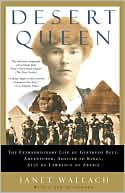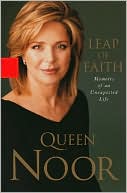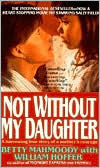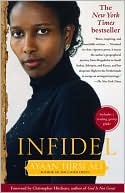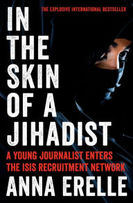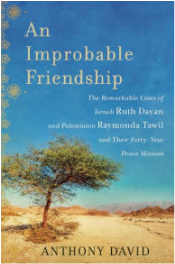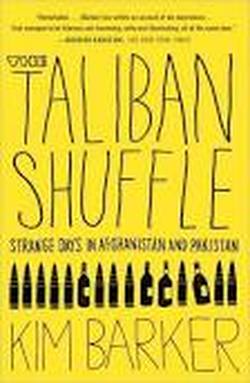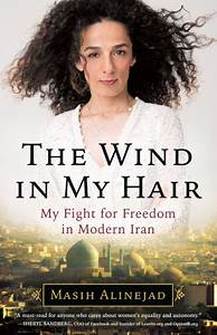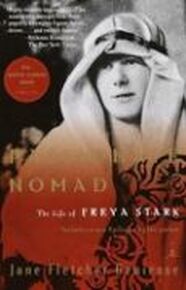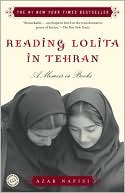
Reading Lolita in Tehran Azar Nafisi 2003 |
The author, now living in the US, tells of almost two decades in Iran, as a teacher of English and American literature. She tells of the great hopes for reform after the fall of the Shah and the return from exile of the Ayatollah Khomeini, and with her we watch in horror as the revolution takes Iran by force instead into its medieval past. There are arrests, murders, and executions and those who can, flee to the West. The transformation of Iran is charted by the repressive attempts to make women invisible, by covering them in public from head to toe. It becomes a world in which wearing fingernail polish, even under gloves, is a punishable offense. And punishment, as we learn, is typically brutal.The author escapes from this violence into the imaginative world of Westernnovels (from Nabokov to Dashiell Hammet) where she finds democratic ideals expressed in fiction's ability to help us empathize with other people. For her,it is the heart that has gone out of the gun-wielding moral police that want to sweep away all but complete submission to their fundamentalist form of Islam. And while she is a teacher, she must deal with classes filled with students who have been polarized by the political forces around them. All, curiously, are in single agreement that the West is corrupt and absolutely evil. Meanwhile, the novels of Western writers engage them, sometimes furiously. A wonderful sequence in the book concerns a mock trial in the classroom in which "The Great Gatsby" is brought up on charges of immorality."Lolita," we discover, becomes a story of a girl who finally escapes from the clutche sof a man who wants to erase who she is and turn her into a figment of his imagination. It's not an allegory of Iran, Nafisi insists, but it's hard not to see the parallels. The contamination of personal relationships between men and women and its impact on love and marriage inform their readings of James and Austen. Meanwhile, even as her classes meet to argue the merits of these authors, their books are disappearing as one bookstore after another is closed down.Added to all this is an account of living through eight years of war with Iraq, while missiles fall on Tehran and the numbers of casualties on the front lines mount. After leaving teaching, the author assembles a hand-picked group of former students, all female, to meet weekly at her home and talk more about books. Here the individual personalities and histories of each come to the fore, and we get a glimpse (as in fiction) into personal worlds experienced under circumstances that have nearly robbed them of their identities. Reviewed by Ronald Scheer |
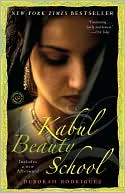
Kabul Beauty School Deborah Rodriquez 2007 |
A work of non-fiction Deborah Rodriguez's book could almost be fictional. Only that it isn't. It's a story about determination, challenge, love and heartache. It is the story of an American woman who catapulted herself from Holland, Michigan to Kabul, Afghanistan. A maverick by nature, Rodriguez came to Afghanistan in 2002, with an American non-governmental organization (NGO) trained in emergencies. Also gregarious by nature, Rodriguez very early on turned her attention to befriending Afghans who spoke some English. Her checkered background in multitasking and a rich personal life helped her in being sought after what was badly need in Kabul - hairdressing. With this, she developed a deep bond with Afghan women, who were just coming out of the tyranny of living under the Taliban. Their heart rending stories are told poignantly by Rodriguez, throughout the book. Reviewed Anita Anand |
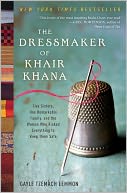
The Dressmaker of Khair Khana Gayle Lemmon 2011 |
Incredible debut novel. Ms. Lemmon writes to shed a light on the seemingly insurmountable challenges faced by Kamila during the Taliban years in Afghanistan. As the author writes, "This was a chance to even the ledger, to share one small story that made the difference between starvation and survival for the families whose lives it changed. I wanted to pull the curtain back for readers on a place foreigners know more for its rocket attacks and roadside bombs than its countless quiet fears of courage."
Kamila was one of 8 children (6 girls and 2 boys). Her parents belief was that all of their children deserved and should be educated. Kamila, their second daughter, had just finished school and wanted to become a teacher when the Taliban took over Kabul. She was forced to stay indoors and was witness to brutality faced by women who dared to venture unescorted by a male relative or expose any skin in public. What they hoped would be a short lived regime, quickly became obvious that the Taliban would rule for much longer than they had hoped. Kamila's father was retired from the Afghan Army and was at significant personal risk as he was considered a threat to the Taliban. Her older brother was of the age where he could be drafted into the Taliban to fight. It was unsafe for a family with so many women/girls to travel. So, Kamila's parents left to seek safety in a Northern Afghan town and her brother fled to Iran in hopes to work and send money home to the women/girls and one remaining 13 year old brother in Khair Khan. Kamila got the idea to begin a dressmaking business upon visiting a female doctor. All medical services were segregated by male/female and medicine was one of the few occupations that women were allowed to continue to pursue. Kamila took significant risks in running a business out of her home and going with her brother on a daily basis to sell their wares in the market. The quality of their work brought in many orders and the sisters were working nearly round the clock. In order to fulfill demand as well as to help other families who were primarily destitute women, Kamila started a dressmaker school all secretly. This story of survival shows both a woman's love of her family, sense of purpose, and determination to make the most out of life despite horrendous circumstances. It is an incredibly inspiring story that the reader will not forget. Reviewed by Mom to 2 Boys "Working Professional" |
|
This is the story of a young French journalist who turned the tables on an ISIS jihadist who thought he was recruiting a young girl to be his wife/slave. Anna Erelle was a journalist doing articles about European girls who had left to join the Islamic radicals in Syria. In order to get close to her subjects, she created an online identity as a young convert to Islam. Much to her surprise she was contacted by a fighter dressed in designer clothes who wanted to make her his bride. When he wanted to skype, she was able to disguise both her identity and her age by donning full Muslim garb. The seduction of the supposed sixteen year old was a stark contrast of flattery and love talk punctuated by rage and demands for complete submission. The most interesting part of the story was how the writer exercised control over the jihadi by not giving in to his demands which only made him more desperate to possess her. Shortly after she broke off contact, French security forces, who had been monitoring the communications, apparently killed the Islamic commander. She got a great story but had to go into hiding for fear of retribution. The book is a brief window into the mindset of an ISIS jihadi. It also helps to explain how vulnerable girls are tricked into leaving their homes and families to enter a life of submission and possible death. Reviewed by S Sather |
In the Skin of a Jihadist
Anna Erelle
2015
Anna Erelle
2015
An Improbably Friendship
Anthony David
2015
Anthony David
2015
|
The Wind in My Hair
Masih Alinejad 2018 |
This book was beautiful, wrenching, and eye-opening, and if there is any one thing that hit home the hardest for me, it's how little I knew about Iran. I still know little, but this book gave profoundly intimate look into a country, world, and culture that was exotic and dark, but also haunting. This was Masih's story, but much of it read like a thriller. I couldn't put it down! It was just incredible—disturbing, and profoundly tense and gripping. One of my favorite passages was this one:
"Minutes went by and I walked around the cell some more. Still no one appeared. Gradually, a sense of unease crept in. It was very quiet. Not a sound could be heard. nothing—no muffled voices, no hum of machinery, no sound of doors being slammed. When I distinctly remember is the silence that descended... I desperately wanted to hear another sound so that I knew I was not alone. the silence was eerie. It was so powerful that I didn't want to make a sound, either." Honestly, much of the book was that tense, and that gripping. And if it wasn't those things, it was infuriating and heartbreaking. This story is for everyone, but as a woman, I found it to be more personal. It made me grateful for what I have, and reminded me to never take it for granted. It also reminded me why we keep fighting... To honor the harder battles fought and won by the women who came before, who fight now, and who will continue the fight long after we are gone. reviewed by Gingerbread |
|
Life Undercover
Amaryllis Fox 2019 |
This is the absolutely riveting story of a modern day spy, a real life James Bond, although, as she notes, Bond is ridiculous; in the real world of espionage, "one street chase and my cover is blown for life." This is the story of how Ms. Fox became a spy, what that life cost her and what it gained, and why she left.
This memoir exposes so many secret lives, all at once. Ms Fox talks about being recruited by the CIA while still in graduate school, getting up at 2 am, analyzing and preparing nuclear threat assessments for the President's morning briefings before biking back across DC for a full day of classes. She writes about being chosen for clandestine service, and how she recruited her first pretend asset, with a nod to Frank Sinatra and asking for a favor. She writes about how, in the most high stakes meeting imaginable, with a terrorist cell ready to unleash a nuclear bomb, the presence of clove oil in her backpack ended up being the prop that turned the tide. Reviewed by Robyn C |
